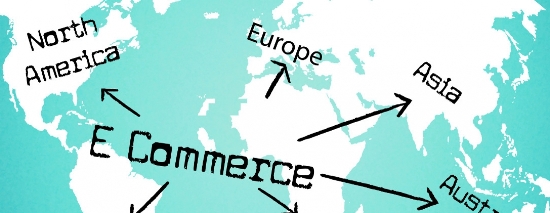China tightens its cross-border e-commerce rules
Source:internetretailer.com
Selling online to China’s growing middle class will become more difficult next year for some overseas retailers and brands under new regulations announced by the Chinese government.

Selling online to China’s growing middle class will become more difficult next year for some overseas retailers and brands under new regulations announced by the Chinese government. The new regulations will have the biggest impact on goods that require extensive testing to obtain certification, such as food products, nutritional supplements and cosmetics.
As of May 2017, goods stored at warehouses in special cross-border e-commerce zones in 10 Chinese cities will have to be certified for sale in China, just as if they were shipped into China for sales in stores or by China-based e-commerce sites. Regulations in effect for the past three years have allowed these goods to be sold without obtaining Chinese certification.
That’s a big deal because obtaining certification can be expensive and time-consuming. “In some heavily regulated categories like nutritional supplements, overseas brands need to wait one year and spend about 500,000 yuan ($76,000) to get certificates to sell in China,” says Liu Shisheng, CEO of RapidKargo International Forwarding Co. Ltd., a Chinese logistic company that operates warehouses in duty-free zones.
The new rules, however, will not impact overseas retailers that ship individual orders from warehouses outside of China. U.S. nutritional supplement brand Rydex Direct currently ships orders from Chinese web shoppers both ways, staging some products in duty-free zones and sending others from abroad, says Adams Li, the company’s China distribution director. “If China asks us to submit product certificates in 2017, we can still ship products into China via our warehouse in Hong Kong, China.” Li says.
He notes the cross-border policies, which were aimed at eliminating obstacles to purchasing from abroad for China’s increasingly affluent consumers, are still relatively new, and that modifications were to be expected. “I am still confident about cross-border e-commerce in China,” he says. “It is a new thing, so it is expected that the Chinese government would often changes its policies. The big picture is that the Chinese government will encourage consumer spending, not suppress it.”
Shipping from overseas is more expensive than storing large quantities of goods in a duty-free warehouse, and then sending individual items through customs when a Chinese consumer orders them. “An average parcel shipped from France costs about 13 euros ($14.50) and takes one to two weeks to deliver to China,” says a spokeswoman for Azoya Group, a Chinese company that helps foreign retailers sell online to Chinese consumers. “It is not cheap compared with shipping a bunch of goods via duty-free warehouses. But we found many consumers doesn’t care about the higher shipping cost because they feel more confident in receiving the products directly from overseas.” Azoya’s clients include more than 30 international e-retailers, including French-based La Redoute SA, No. 55 in the Internet Retailer Europe 500 and U.K.-based Feelunique.com, No. 231.
Although the regulations tighten next year, the door for cross-border e-commerce is still open, even for brands that sell regulated products, according to Zhang Zhouping, a senior analyst at the Chinese E-commerce Research Center. “The Chinese government may develop a faster way for e-retailers to pass the food inspections.” Zhou says, “In a recent trial, a customs official in Guangzhou said e-retailers can submit their overseas goods certificates as a replacement for Chinese domestic certificates.”
The Chinese government mentioned plans to require additional documentation for cross-border orders last month but did not go into detail at that time. That announcement related to changes that took effect recently in the duty charged on cross-border e-commerce orders placed by individual consumers from online retail sites outside of China. The new rules raise the fees on certain products and lower them on others, but experts doubt they will significantly impact the growing sales of foreign goods to online shoppers in China.
(Source: internetretailer.com Author: FRANK TONG)





 沪公网安备31010402003309号
沪公网安备31010402003309号



